Harvey John
Unit 2 Ferry Wharf
Hove Enterprise Centre
Basin Road North
Portslade, East Sussex
BN41 1BD
2019 is flying by already and we’ve had some great interviews so far! Last time, we spoke with Martin Lazaroff about his career around North America, Europe, and more recently Dubai! Following the triple continent theme of Martin’s journey, this week we’re very lucky to have Anna Ogenblad with us.
Based in Lund (Sweden), Anna plays a key role in Sony Mobile’s EMEA & Americas team. But, before this, Anna started her career in GST at PwC Auckland and then moved over to Silicon Valley as an international VAT specialist!
It’s a great read with some excellent advice! What resonated the most with me is that Anna is a self-confessed ‘foodie’, which is a means of travel I also love!
Over to Anna…
Anna, great to have you on this week’s edition of The Tax Expat – thanks for joining us! Can you start by telling tell us a few words about yourself?
Sure thing! I’m an international VAT professional and I started my career in professional services with PwC but now work with international VAT at Sony Mobile in Sweden.
On a personal level, I’m a hardcore foodie who loves to explore different cultures and countries through food. Luckily, my husband shares the same interest, so we spend most of our free time either thinking about food, cooking food or deciding where and what to eat on our upcoming vacations.
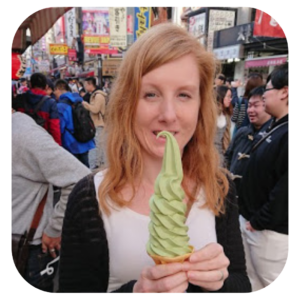
Food is the best way to travel! So Anna, perhaps more unconventionally, you started your tax career abroad in New Zealand as opposed to your home country, Sweden. How did this opportunity come about?
In my final year of university in Sweden, I had the opportunity to go on an exchange semester to Auckland. It was supposed to last for one semester, but I ended up staying 5 years!
After I finished my studies, I secured a graduate position in PwC’s GST team in Auckland where I worked for 4 years. I was fortunate enough to have great colleagues who were very patient with me as I learnt my way around the intricacies of New Zealand GST. This was a terrific place to start my career and it gave me a great foundation of the core GST & VAT principles.
New Zealand is a relatively unexplored country for European tax professionals, with most opting to work across the continent or, now, the Middle East. Starting your career and working there for a few years, how did you find this experience?
I found that New Zealand had a more relaxed and less formal working environment than Europe, at least when it comes to professional services. We used to have casual Fridays the last Friday of every month, and I remember it being very casual! People would show up to work in tank tops, surfer shorts and jandals (kiwi slang for ‘flip flops’).
In terms of the type of work we did, it was very broad. Unlike in Europe, we didn’t specialise in sectors such as financial services, retail, real estate etc., meaning that I got to work with clients from all types of industries. For me, this was very interesting as I got to learn not only about the GST issues affecting different industries but also about how different industries operate.
Is there anything you miss about your time in New Zealand?
Yes, of course. I miss my friends and colleagues (many were both). Luckily, some of them are back in Europe now so I get to see them more often. I also miss nature and the climate (not the rain!) as well as the openness and humour of Kiwis.
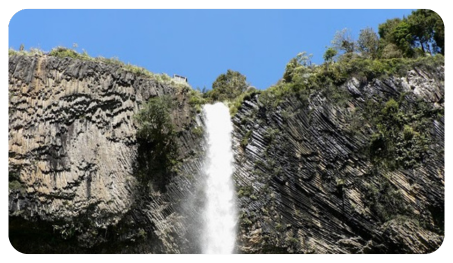
How did the opportunity in San Jose come about?
The move to the US happened quite suddenly actually. My husband had recently finished his PhD and got a job offer in the US. We decided to go for it and move, although I hadn’t yet found a job.
While I was looking for jobs in the US, PwC San Jose was looking for a Senior Associate for their VAT team, and I got the job. So, I didn’t move to the US for a job but rather ended up getting one after I arrived in the US. I guess that’s just how things end up sometimes.
Being a tax ex-pat: New Zealand or the US?
On a professional level, I would say the US, as it gave me more exposure to international VAT matters. Being able to work with large multinational corporations and learn from them and my VAT colleagues was a great experience. It was also very exciting to be working in Silicon Valley with numerous startups, many of which have done extremely well and have now become internationally recognised brands.
On a personal level, I enjoyed New Zealand more. California has a car culture where people drive long distances daily – outside of San Francisco there is no public transport to speak of. Coming from Europe, this didn’t suit me at all. New Zealand was better in that regard (albeit not as good as Europe), and also had the added benefit of having an amazing outdoors. I also, generally, found people in New Zealand to be friendlier and less competitive than in the US. I do miss the food in the US though!
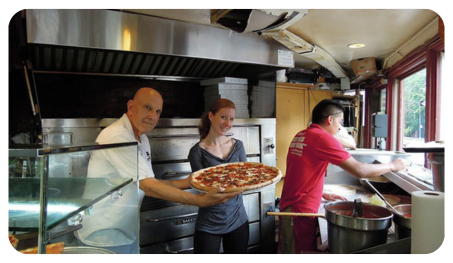
As you’re back in Sweden now but, looking back, what was the biggest challenge you found whilst being an expat?
Yes, I’m back in Sweden now, but when I moved back I had never worked professionally in Sweden, which was quite a challenge in the beginning. I remember an incident at the beginning where I couldn’t remember what “reverse charge” was called in Swedish (FYI – omvänd skattskyldighet)!
I’d say the biggest challenge of being an expat is finding new friends and establishing a network. I found that finding new friends through common interests was the best way to go. In the US, joining an event on meetup.com was also a good way to meet new people.
Living life as an expat in NZ & the US – was there anything that missed from Europe?
As mentioned before, decent public transportation for one! Also, both the US and New Zealand are New World countries, so coming from Europe I sometimes missed the history and culture that comes with that.
Coming back to Sweden wasn’t the end of your travels, though. I hear you’ve spent some time in Tokyo through Sony.
Yes, I spent just over 3 months in Tokyo when I was providing global VAT input on a project which was driven from the HQ. It was a great learning experience and also made me understand and appreciate Japanese culture a lot better!
I’m very jealous – Tokyo is at the top of my list! Several friends have told me that Tokyo is an extremely liveable city. I appreciate that you weren’t there on a long-term basis, but what did you think about Tokyo as an expat destination?
I agree, Tokyo is a very liveable city. It’s easy to get around by subway (or even bike, although I never tried that!). The car traffic is quite low compared to other big cities I’ve visited, which I guess is because the subway and trains are extremely punctual, so there’s really no need for a car. I also heard that Tokyo has the most eateries per capita in the world, so you never run out of new places to eat (good for me)!
From a professional point of view, I found the Japanese people extremely hard working and, while there, I wanted to contribute as much as I could. This meant that I put in some quite long hours. That said, the work environment in the office was extremely friendly and my colleagues went to some great lengths to ensure I had everything I needed. Some of my colleagues even arranged a weekend trip for us to an onsen (traditional Japanese bath)!
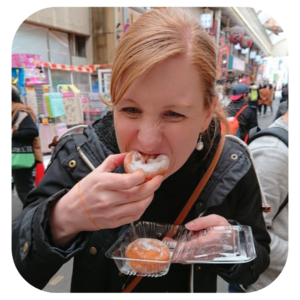
With all of your travels, what would you say has been the most important thing you’ve learnt about yourself since living abroad?
That’s a very difficult question as I feel that I’ve learnt so many things from living abroad. Moving countries (or travelling in general, I suppose) really opens up your perspectives and changes how you see both yourself and the world.
I think the most important lesson I’ve learnt is to be open; open to people, to new ideas and new ways of doing things. Before I left Sweden, I’d hardly been travelling at all, and moving to New Zealand gave me the opportunity to explore how things are done in other parts of the world. Living and working in different countries gives you a unique perspective on things and I feel (and hope) that I’m more open as a person as a result of it.
And if you could turn back the time, would you have made the same moves?
To be honest, I think I would have made the same choices. Perhaps I would have considered changing the timing of my second move from New Zealand to the US (as mentioned, I didn’t have a new job at the time I moved).
You can give one piece of advice to a future tax ex-pat – what would it be?
Go for it and keep an open mind!
Anna, thank you very much for joining us! You’ve had some great experiences over the years and I really appreciate you sharing them with us.
—
Are you a Tax Expat? If so, we’d love to hear about your experiences and share them with our global tax network. For more information, please contact Alex Mann.
If you would like to see our company updates and industry insights, follow our LinkedIn page here.
Author
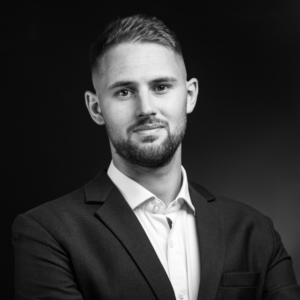
From boutiques to the Big 4, and start-ups to multinational corporations, Alex manages a diverse portfolio of clients worldwide which has enabled him to develop a vast global network of indirect tax and tax technology professionals in 40+ countries.

